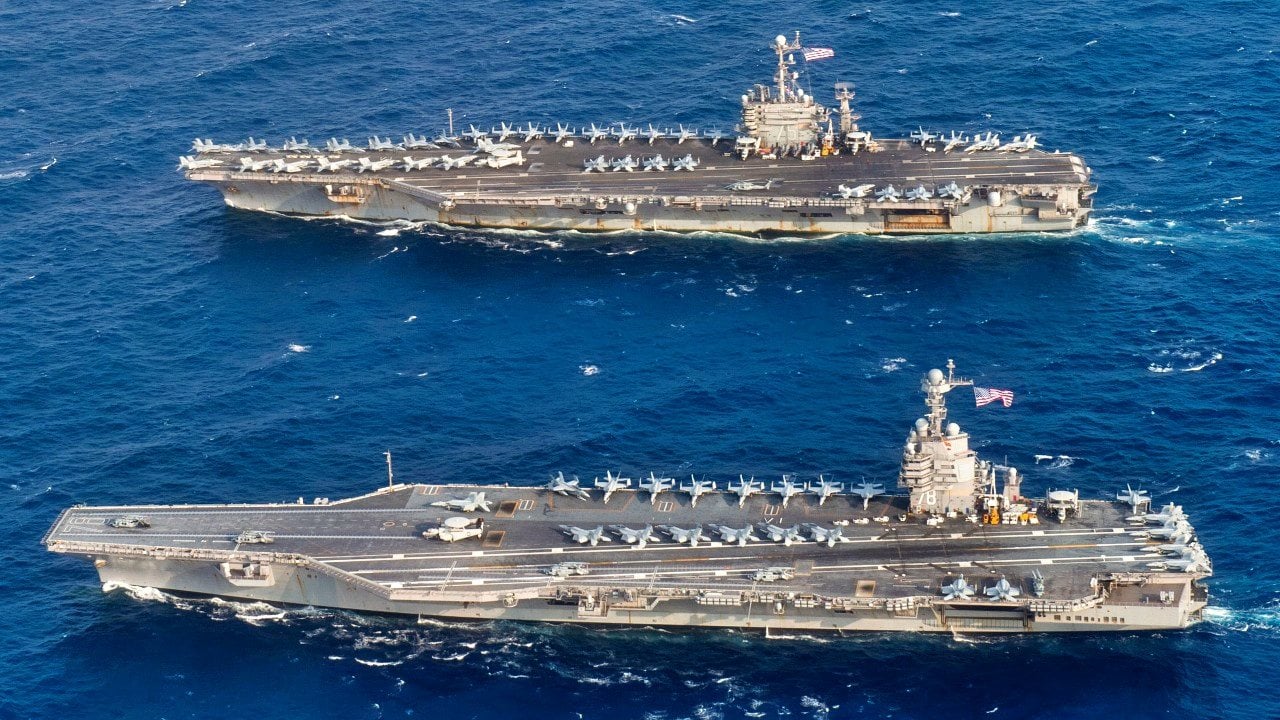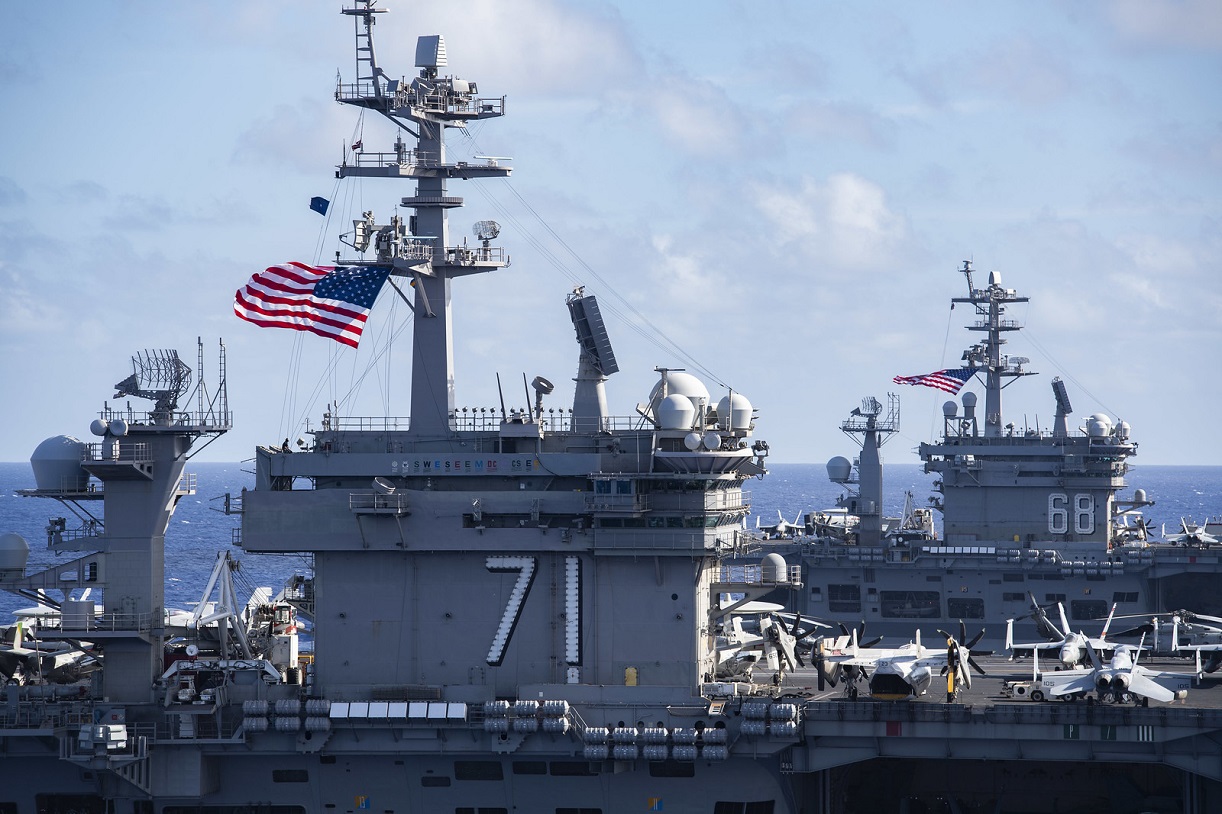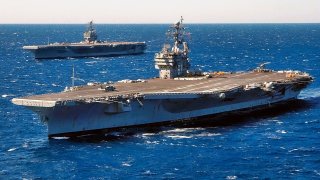Russia's Aircraft Carrier Nightmare Is Unfixable Now
Russia, historically a land power, has limited naval capacity despite access to warm water ports. Moscow's ambition to build a fleet of aircraft carriers within a decade seems impractical, given the ongoing war in Ukraine and the country's focus on land-based military priorities.
Summary and Key Points: Russia, historically a land power, has limited naval capacity despite access to warm water ports. Moscow's ambition to build a fleet of aircraft carriers within a decade seems impractical, given the ongoing war in Ukraine and the country's focus on land-based military priorities.
-Transitioning from a land to a maritime power is complex, and Russia faces significant geographical and logistical challenges.
-Aircraft carriers would likely be limited in their operational scope, making them a costly and ineffective investment. Russia should instead focus on strengthening its submarine fleet and ground forces to achieve its strategic objectives.
Russia's Ambitious Aircraft Carrier Plans Face Major Obstacles
Russia is a land power. It always has been. Sure, it has access to four warm water ports, allowing for its navy to operate globally. But to say that Russia is a naval power is like saying the chicken, a bird, can fly. Russia has limited naval capacity.
Despite this enduring fact, Moscow continues to bang the war drums about their incipient aircraft carrier capability. They continue propagating the notion that, within a decade or so, the Russian Navy will possess four aircraft carriers to more reliably project power globally, specifically with their Pacific and Baltic Sea fleets.
Where is Russia going to find the resources and time to build such systems?
Everything is going to the war effort in Ukraine, which is not a naval war. The Russian Army, as has always been the case, is the priority, and winning the land war in Ukraine will win the war itself. Such is the nature of continental powers like Russia.
When Continental Powers Move to Maritime Powers
Continental powers do often try to transition away from being land-powers to maritime powers. China is currently attempting this. The United States, after it expanded from sea to shining sea, ultimately transmogrified itself into a maritime power. But China’s maritime conversion is incomplete, and the Americans benefited from fortuitous geography.
Russia, on the other hand, remains a geographically landlocked country. (This is why they are fighting so desperately to maintain their access to the Black Sea via Sevastopol, and the Mediterranean Sea through their Tartus naval facility in Syria).
Russia cannot make the conversion for a variety of factors. As the titular character in Dirty Harry once chided a criminal, “A man’s got to know his limitations.” That line has special meaning when considering Russia’s quixotic quest to build a fleet of aircraft carriers for itself.
First, they won’t be able to build as many as they think in a timely fashion.
Second, the carriers will be limited in their area of operation, making them not worth the cost.
Third, there is nothing in Russia’s long history of naval operations to indicate that Moscow will competently conduct aircraft carrier operations.
And what does Russia want with flat tops? That’s a more interesting question.
For instance, since he first rose to power in Russian politics, Vladimir Putin has been obsessed with reorienting his country away from the West and toward the East. In 2000, Putin sojourned to the Russian Far Eastern city of Blagoveshchensk. While there, he exhortedthe city’s populace to start having babies, as they were being out-produced by the Chinese just on the other side of the Amur River.

In fact, most of the siloviki who surround Putin have favored a focus on the Pacific side of the Russian Federation.
The Areas of Focus for Russia are Indicative of Larger Plans
The two areas that Russia dreams its carriers will operate mostly in will be the two regions that are most contested for Russia – the Black Sea and the Pacific Ocean. Given Moscow’s new love affair with Beijing, having an enlarged Russian naval presence might augment China’s standing in the region (or it might complicate it).
But all this is merely theoretical. There is no way that the Russians will ever be able to achieve these lofty ambitions.
Moscow should not even waste the resources on drawing up concept art for the once-and-future Russian aircraft carrier force. Instead, they should channel those resources into their submarine fleet and into their ground forces – those will actually win them wars.

Whatever Russia chooses to do, if they opt to pursue their carrier ambitions, it will be a most pathetic sight to see. And it just might buy the United States and its allies a reprieve, as Moscow will have wasted critical time, resources, and money building these vanity projects.
Author Experience and Expertise: Brandon J. Weichert
Brandon J. Weichert, a National Interest national security analyst, is a former Congressional staffer and geopolitical analyst who is a contributor at The Washington Times, the Asia Times, and The-Pipeline. He is the author of Winning Space: How America Remains a Superpower, Biohacked: China’s Race to Control Life, and The Shadow War: Iran’s Quest for Supremacy. His next book, A Disaster of Our Own Making: How the West Lost Ukraine, is due October 22 from Encounter Books. Weichert can be followed via Twitter @WeTheBrandon.
All images are Creative Commons or Shutterstock.
From the Vault
Russia Freaked Out: Why the U.S. Navy 'Unretired' the Iowa-Class Battleships
Battleship vs. Battlecruiser: Iowa-Class vs. Russia's Kirov-Class (Who Wins?)


